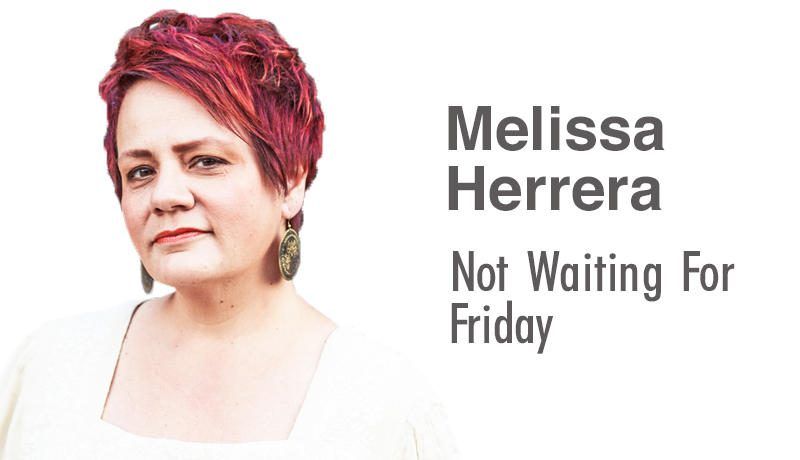When 'Eye of the Tiger’ helped fell communism
- Melissa Herrera: Not Waiting for Friday
- February 27, 2022
- 761
I read a lot of Judy Blume books as a kid. Her prose sucked me in until I felt I was living her characters as lavishly as she described them. I chose books by different authors with recurring themes: kids living through the Holocaust, America post-WW2, living in the South during the Civil War or Hardy Boy mysteries.
In “Starring Sally J. Freedman as herself” (a favorite by Blume), the main character meets a neighbor that lives in her apartment building in Miami. She becomes convinced he looks like Hitler and believes he is Hitler living in secrecy in sunny Florida. Fears of the day were thick in the air. There is no remedy for the horrors Hitler was responsible for. What we can do is never forget that it did happen — never forget what Nazism stood for. Sally knew this in Blume’s novel. It was fresh in her mind.
The first important televised incident I remember implicitly is Nixon’s resignation. I lay on the floor of the family room on my stomach, pillow propped up under me, and watched the drama unfold on our big console TV. I was almost 6, and though I knew something important was happening, I didn’t feel the gravity of it. I don’t remember the fall of Saigon a year later, though I’m sure it was playing on our screen.
Years later I was in high school, and we were embroiled in the flexing of our muscles against our mortal enemy, the Soviet Union. Every other movie was filled with parachuting communists bent on destroying this fertile soil and the glorious rise of ragtag bands of patriots who would never let that happen. Cue triumphant music meant to inspire and a bunch of RPGs and machine guns blasting, and the movie would come to a climax. Trust me I watched almost all of them. And we won — every single time, even Rocky.
If I watch one of these movies today or even the newly made versions of them, I cringe a little bit inside. In my opinion there’s too much put into the exaltation of who we are and how we win — how big our weapons are. Instead of remembering why we began making these types of movies or writing these types of books, we should keep a keen eye to never repeating the reason.
“Red Dawn” was one of my favorite movies from 1984, and the premise of Russian and Cuban forces gently parachuting onto our land seemed a scary notion then. I was riveted at every turn. But I believe we’ve become so puffed up with our own prestige current day — how big and fast our bombs are — that we forget the tragedies of the past were the reason these movies were made in the first place, that books were written, that people lived it and are still living it out today. We encapsulated it, made monuments and exploded bigger-than-life movies about it on the theater screen.
We’ve become laser-focused on those that are not our enemies, thinking them out to harm us. Instead of reacting, we must focus sharply on facts, honing in not on fear but truth, sifting through a different type of verbal wreckage meant to confuse. I knew who the enemy was in the books I devoured as a youngster. It never touched me here — nothing much did — but it was a solid presence I felt comforted in knowing the depth and scope of.
Hitler was a man full of terrible ideologies and twisted language that turned a solid section of his country toward him. They looked away from the atrocities happening to their neighbors. Was it because it was easier? Safer? I am not them. I don’t know their reasons.
But I do know Hitler is not Germany, just like Mussolini was not Italy, and the Soviet Union was not Stalin, or in current day, Putin is not Russia. Good people inhabit the wild lands of this earth where terrible things happen every day, and innate inside them is the propensity for self-preservation. No one gets to decide who survives but ourselves unless it’s against our will, unless we turn our heads to the smallest of details that gather into the biggest of nightmares, when small give-ins turn into restrictions.
The monsters in books and movies are safe inside worn pages and old movie screens, until we decide to forget them, until we think them a quaint footnote in history and the ragged edges of events no longer cut us with their sharpness, until present day has quietly turned into something resembling a past we worked so hard to defeat.
Melissa Herrera is a columnist, published author and drinker of too many coffees. You can find her book, “TOÑO LIVES,” at www.tinyurl.com/Tonolives or buy one from her in person (because all authors have boxes of their own novel). For inquiries or to purchase, email her at junkbabe68@gmail.com.

